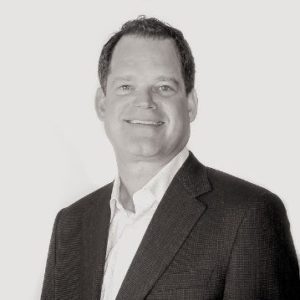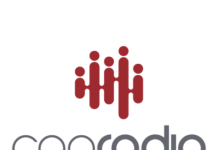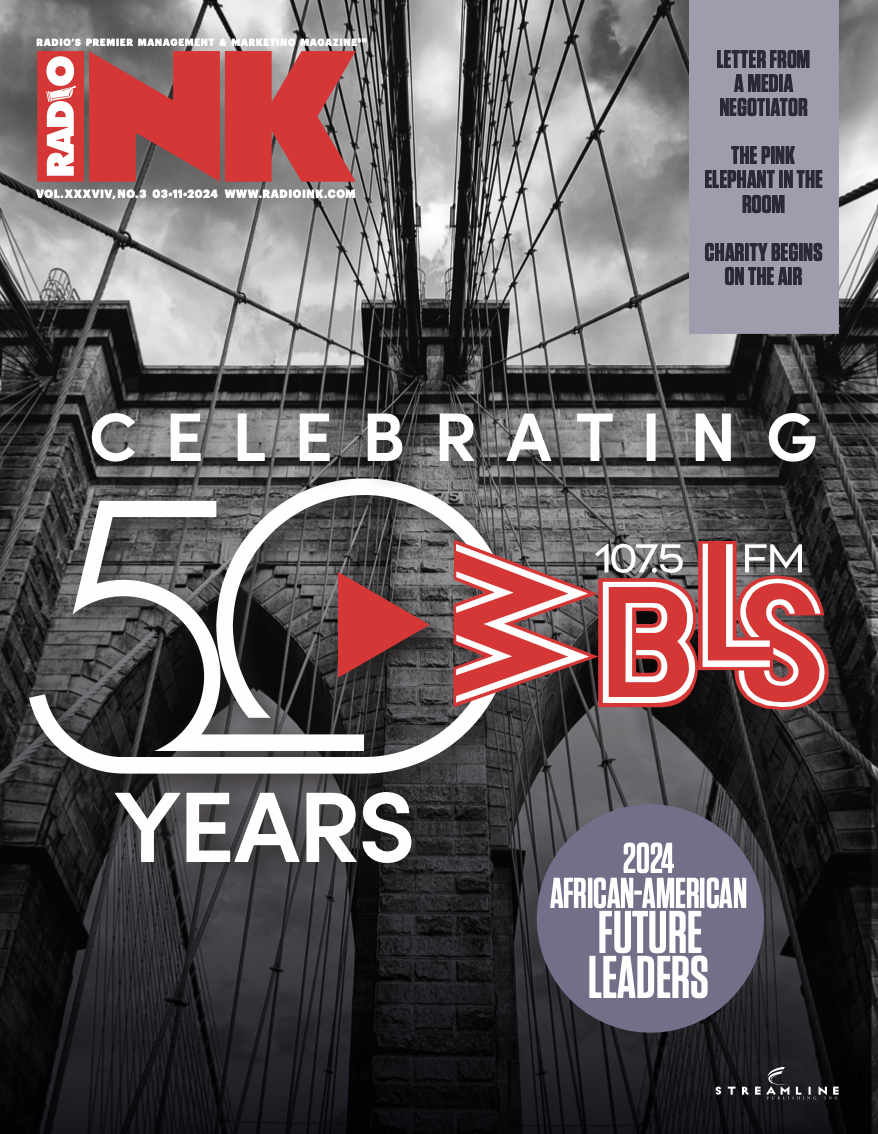
Hartley Adkins joined Jacor Communications in 93 which was purchased by Clear Channel which became iHeartMedia. Adkins has been with the company for 26 years. Along the way he’s run the Washington, D.C and Baltimore markets, oversaw the Southeast Region (36 markets) and now as the President of Integrated Revenue Strategy is charged with developing new revenue initiatives for iHeart’s many platforms. A huge responsibility for the largest company in the industry. In 2019 Adkins was named one of Radio Ink’s Top 20 Leaders in Radio. Here’s why…
Radio Ink: What has made you a great leader throughout your career?
Hartley Adkins: Well, it would be presumptuous to consider myself a great leader. What I will own is that I give my best in every instance, and expect those who work alongside me to do the same. While not always a popular expectation, I find that people who love to win don’t mind working hard. They cannot stand to be ordinary. I’m fortunate to be surrounded with such smart and impressive innovators that challenge me as I challenge them, and we make each other better.
Additionally it would be criminal if I did not give credit to my Mom and Dad. Through their actions, work ethic, and often hard-knock life lessons, I was taught what it meant to be accountable to one’s self and others. Both started from extremely humble beginnings, yet each built burgeoning businesses and put me to work in them every chance they got. And it was the best thing for me, I was taught you cannot outsmart everyone, but you better outwork them.
Radio Ink: Are you happy with the current leadership in the industry?
Hartley Adkins: Our industry is on the brink of greatness, and it will take tremendous leaders to navigate the opportunities created by a litany of consumer electronics, new platforms, evolving consumer habits. I am fortunate to have worked closely with the majority of industry leaders through my NAB and RAB posts, and in aggregate we have some of the best leaders radio has ever had. These leaders have an immense but rewarding challenge ahead as we tackle critical industry issues like performance tax, music licensing, deregulation, the battle for the dashboard, and others yet to rear their head. We owe it to each other to put the industry’s needs first on these critical matters, because if the industry wins, we will all benefit.
Radio Ink: What are the top three characteristics needed to lead people during these times in radio?
Hartley Adkins:
Courage: Having the willingness to own failures, recognize successes, and make the tough decisions are needed to not only earn the respect of your team, but to stay the course in a world full of distractions.
Adaptability: There is a sea of change in motion, and one cannot be married to an idea or legacy thinking that is no longer relevant. You have to seek out insights and be prepared to pivot towards new opportunities. And above all, listen to your teams. No single person has all the answers, collective intelligence will propel a good idea into a great one!
Communication Skills: The ability to clearly articulate the vision of your organization is vital. This will give your team clarity of purpose and empower them to succeed in an otherwise tumultuous environment. The “do things because I said so” leadership days have fortunately passed. Teams will strive for greatness if they fully understand the mission ahead and own the outcome.
Radio Ink: Is the radio industry in a good place, and what would put it in a better place?
Hartley Adkins: I fully believe we are in an era of radio’s renaissance! Radio is the only form of traditional media thriving in the age of digital disruption. The new study by Deloitte calls out the fact that radio is showing incredible resilience while other traditional media continue to atrophy. Even the golden child of digital is being recognized as a marketplace fraught with fraud and in a “trust crisis.” So in a window where marketers are scrambling for a trusted environment to place their products, radio is recognized as the most trusted medium in America, more than TV, cable, or social media.
How can it be better? The public has made it clear, audio is their favorite medium, now we have an obligation to help marketers fully understand and leverage that reality. How can we have 93% audience penetration and 7% revenue share? It is a paradoxical and confusing dynamic. We need marketers to act more in alignment with consumers’ commitment to our medium. Plus we have to capitalize on the audio growth platforms of streaming, podcasting, smart speakers. These all create new listening and are accretive to our broadcast listening.
Radio Ink: What is your position on ownership and deregulation?
Hartley Adkins: I don’t think it’s a good idea. Much like the 80% of respondents from the Radio Ink survey you ran who thought it was a bad idea. Although iHeart could increase the number of FM stations we own, we think if it damages the whole radio business, it’s ultimately bad for all of us. Industry groups agree, including the National Association of Black Owned Broadcasters (NABOB), Multicultural Media, Telecom and Internet Council (MMTC), who all have voiced strong opposition to proposed deregulation.
By permitting increased or unlimited ownership of FM stations, it would potentially decimate the value of AM radio. With no limits on FM ownership, companies would logically buy FM stations instead of AMs, and would likely divest themselves of AMs – and, at the very least, would not be interested in acquiring more AMs. With that kind of sell-off or lack of demand, the value of AMs would most certainly decline.
Supporters of unrestrained deregulation argue more FM stations under individual ownership give a company more clout with advertisers. Unfortunately, the facts do not support that. We compete with TV, Facebook, Google, and many other digital players for revenue. Having more FM stations does not cause advertisers to prefer us, and more FM stations is not a substitute for ideas, relationships, compelling programming, and data solutions for our advertising partners.
We suggest a more strategic and targeted reform: Leave the FM subcaps intact and eliminate only the AM subcaps, allowing for more ownership of AM stations. Economists say this will drive greater investment in AM stations and help strengthen – not damage – this important part of our industry. And because we are firm believers there should be more diversity in ownership, we also support establishing a meaningful ownership diversity incubator program that would allow a participating diversity company to own one additional FM station above the local cap.
Reach out to Hartley to congratulate him on being one of radio’s top 20 leaders for 2019 at [email protected]






I am pleased to read of another individual who is providing exemplary service to clients and to his outfit. The man deserves congratulations.
Given the vagaries of digital advertising, Hartley also points to the established penetration of commercial radio. Then, he wonders: “How can we have 93% audience penetration and 7% revenue share? It is a paradoxical and confusing dynamic.”
I suggest there are no paradoxical elements in the scenario. The injurious elements have been obvious – for decades.
Radio is guilty of serial crimes agains audiences, advertisers and, to some extent, employees.
Inept, lazy programming, criminally shoddy commercial production and, of course, the phusterclucking of spots are all openly being displayed on most radio stations around the country.
Newer, better and more effective strategies on all of these fronts are required.
I can only imagine what Hartley and other pros could accomplish were these factors to be considered and acted upon – seriously.
Congratulations Hartley!